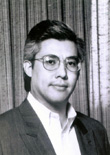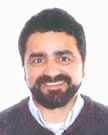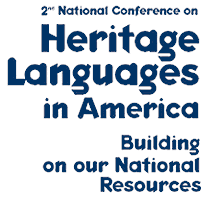 |
This year’s conference will bring together heritage language community
and school leaders, representatives from pre-K-12 schools and colleges
and universities, world-renowned researchers, and federal and state policymakers
to plan and lead new initiatives in heritage language development in the
United States.
PLEASE GIVE US FEEDBACK ON THE CONFERENCE (WORD | PDF)
Keynote Speaker

Claudio Sanchez
National Public Radio |
Plenary Speaker

Joseph Lo Bianco
Language Australia |
Who
Should Attend
• Heritage language community and school leaders
• Representatives from pre-K-12 schools, colleges, and universities
• Researchers
• Federal and state policymakers
• Business leaders
Our
Vision
The vision of this conference and the Heritage Languages Initiative is
to build on and develop the language proficiency of heritage language
speakers in our country. High levels of language proficiency among heritage
language speakers will assist in meeting our needs in global economic
competitiveness, national security, civic engagement and participation,
community leadership, and cultural preservation. To build this national
resource, we need policies, strategies, and resources. We also need structures
through which we can collaborate to accomplish this vision.
Our
Goals
The purpose of this Second National Conference is to provide a place for
individuals, organizations, and associations to participate in new initiatives in heritage language development.
Our specific
goals are to
• Develop visibility and public awareness of the economic, personal,
and social benefits of proficiency in languages other than English and
of the language resources that we have in the United States.
• Increase the extent to which heritage language issues are part
of the national dialogue.
• Provide a public forum for participants to shape a national heritage
language policy and to engage in heritage language planning for the nation.
• Provide a forum for information sharing (current best practices
and successes) and information building (new practices and funding opportunities).
• Provide opportunities for participants to work together in various,
flexible groups on issues of interest.
• Develop collaboration among all constituent groups and a plan that
moves us from rhetoric to action.
|
